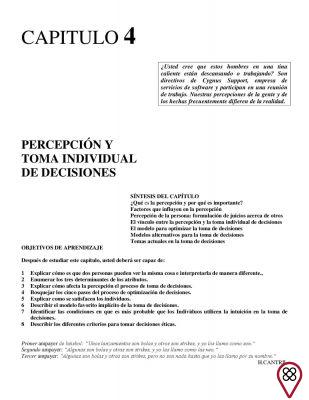Have you ever asked yourself that question one day? If you suffer from irritability, anxiety, have a lot of negative thoughts, are unable to envision happiness in your life, often recall difficulties from your past, experience abuse (physical or emotional), have recurring disturbing dreams, panic , phobias, you have felt for years about the loss of a loved one and you have never consulted with a psychologist, the question of this title may be pertinent to you!
According to the World Health Organization (WHO), our health was initially defined as a state of complete physical, mental and social well-being; it does not consist merely in the absence of disease or infirmity. This definition dates back to 1946 and has been improved over the years, based on the observation of changes in societies. Thus, other dimensions were added: aging, social and educational status, income, access to basic sanitation, security, family support network, genetic factors, behaviors, consumption patterns, physical activity, etc.
With the transformation of the concept of health over the years, it is necessary to abandon the conception, still common, that being healthy means not having pain, bone fractures, normal functioning of physiological functions, that is, we need to expand in order not to prioritizing a single (physical) health dimension, but its global aspect.
We know what physical health is, but it becomes more difficult when we try to define what mental and social health is. We can consider mental and social health as a state of well-being in which the person is able to think, use their creativity, relate to the social environment, feel good in their environment, work towards their goals, dream and dealing with everyday emotions.

Today our routine is marked by situations of professional stress, lack of time, pressure for results, tensions, risk of suffering violence, discrimination and social exclusion, among other factors that are important to think about possible risks to the mental health of the population.
According to the WHO, by the year 2030, depression will be the most common disease in the world. Because of its symptoms, many would become unable to continue with their daily activities, even its most severe forms would further increase suicide rates in the population.
Well, we are in 2021 and, in addition to the aforementioned predictions, we have the aggravating factor of the crisis generated by Covid-19, which brings us closer to fulfilling these predictions.
If we understand that depression is disabling and life-threatening, we can't leave it out of our conception of health, right? In the same way, we can then say that there is no health without mental health. And it is for this reason that in 2013 all WHO member states approved an action plan that aims at a series of measures to prevent and improve global mental health conditions.
But, even in the face of all this information, why do many not seek professional support? There are social problems. Unfortunately, many do not have public access to the diagnosis and treatment of mental disorders, but there is also the problem of misinformation and prejudice about mental health issues.
Excluding social factors, I highlight the main ones I observe on a daily basis:
1- Psychotherapy is expensive:

Of course, paying for a psychotherapy process is not possible for a large part of the population, we don't need to elaborate on this, but how much would you invest in a trip? How much would your new car finance installment cost you? From the new house? How much do you invest in buying objects, clothes, which, in the end, you ended up realizing you didn't really need?
I do not mean to say that these things are unimportant, but it is remarkable to note that we always make choices. If we invest in material goods and not in our mental health, in these cases, it is not due to lack of financial resources, but choices.
2 - Resistance:

Another important factor is the resistance to allowing access to our unconscious through psychotherapy. About these resistances, I mention the resistance of repression. Freud considered that, in this unconscious process, there is an attempt by our Ego to block access to unwanted contents that were kept in our unconscious, because they generate suffering if they were accessible to consciousness.
This resistance naturally appears in the analytic process as an attempt to prevent the analyst from accessing the patient's unconscious desires and contents, that is, it is a process that hinders the understanding that would lead to the root of the symptoms that result in suffering to the patient and that, hard , will have to be overcome by the understanding and skill of the analyst.
3- Denial:
Cousin of resistance, denial is expressed in lines such as: “This is nothing”, “It's freshness”, “I don't need psychotherapy — this is for crazy people”. These statements are usually expressed by people in suffering, but who deny the depth of pain, thus being an attempt to deal with suffering or try to reduce it.
4 – We have a certain attraction for faster or miraculous proposals:

Technology has changed the way we interact with the world. Currently, we are able to gather a lot of information in a few clicks. With psychotherapeutic treatment, it does not happen in the same way, this process has its time, because each subject is unique.
It is important to note that, in order to deal with the complexity of these situations, time and professional training are required. Today, many other professions are trying to enter the field of psychotherapy, so it is important to understand the risks of putting your emotional health in the care of someone who, yes, studied, but to do different things.
- Know all the symptoms of anxiety
- Understand the relationship of herbs with spirituality
- 5 ways to act correctly in an anxiety crisis
- Understand what Psychotherapy is
- Learn more about Psychotherapy Techniques
You may receive a proposal to cure your anxiety, depression or other issues with methods that prove to be innovative, carried out in a short space of time, but wouldn't that be the most comfortable way out you've found to not get in touch with your anguish and stay on an emotional surface?
These are just a few reasons why people don't have access to or don't invest in emotional health. I hope this text supports your reflection and your personal development!
A big hug,
William Sousa
Clinical and hospital psychologist - CRP - 06/103810

























